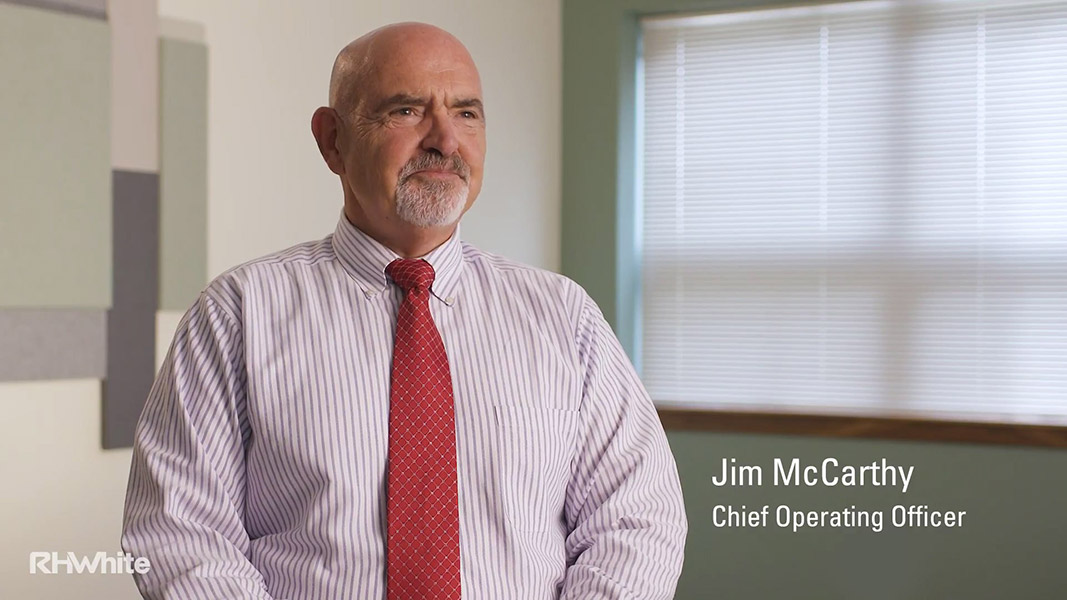Priority #1
We emphasize positive safety behaviors and acknowledge those employees who go above and beyond. Safety all day, every day – whether at home or at work. It’s what our families, friends and customers expect. Creating a safe workplace is a personal issue as well as a corporate one and we all must make it a habit.
In his forward to the book, Safety 24/7 – Building an Incident-Free Culture by Greg Anderson and Robert Lorber, Ken Blanchard states, “The reality is, every organization has a ‘safety culture’ – whether good or bad. What all organizations need is a culture of safety, where everyone takes personal responsibility for their own safety as well as those around them.” That’s the journey where safety doesn’t stop at work – it becomes part of your daily routine even outside of the workplace 24/7.
Listen to what our President & CEO, Jim McCarthy, has to say about our safety culture.

Safety Six
The following safety tenets are an essential part of each day and non-negotiable on every job site. And we go well beyond these Safety Six life-saving rules depending on project-specific exposures. Our primary goal is to continually build an incident-free culture.
P3 - Daily Safety Plan
Personal Protective Equipment
Safe Driving
Rigging
Fall Protection
Excavation Safety
Safety Programs and Training
For a sneak peek at some of our Safety Training Programs click here.
Awards
Associated Builders and Contractors of Massachusetts (ABC), the state’s largest commercial construction association, and the Gould Construction Institute (GCI), ABC’s training affiliate, award Safety, Training, and Evaluation Process (STEP) awards annually.
STEP, a national ABC program, provides safety benchmarking and improvement tools that dramatically improve safety performance among participating companies. Companies measure their safety performance and policies through a review of 20 key components and are evaluated on statistical factors such as incident rates, lost time and OSHA recordables – all with the goal of enhancing safety programs and reducing jobsite incident rates.
R.H. White started participating in the STEP program 10 years ago and has received 10 awards in 10 years – three Platinum Achievement, four Gold Achievement and three Silver Achievement. We’re not perfect, but our journey toward zero incidents continues to drive us every day!